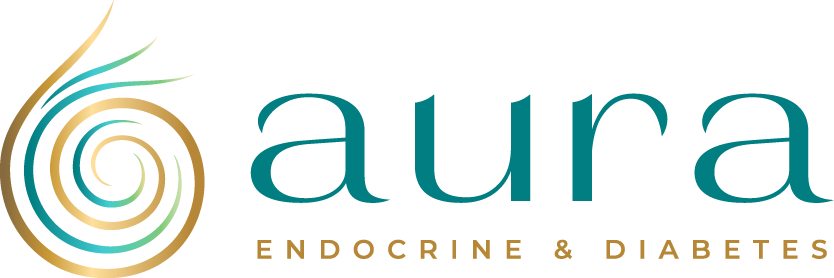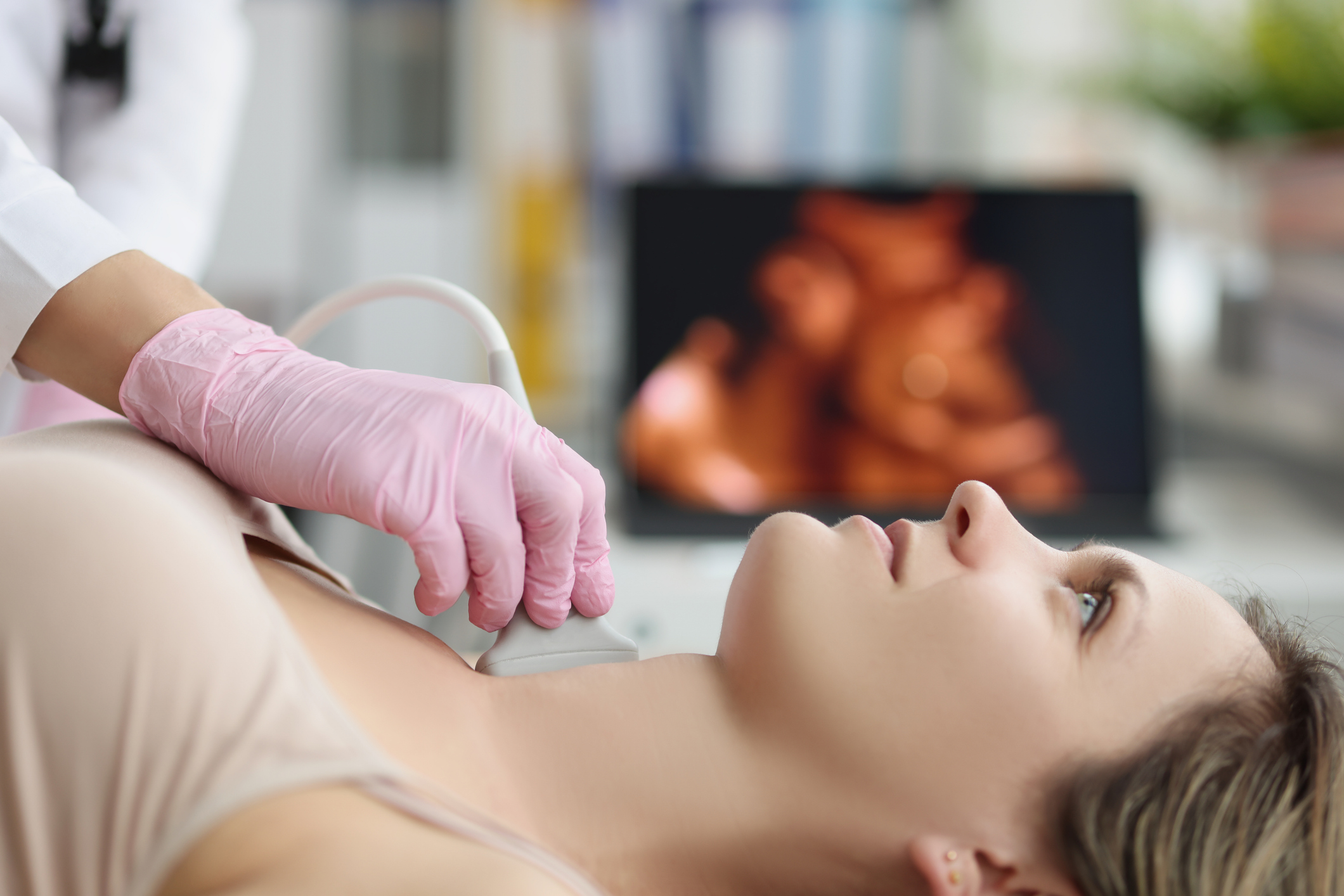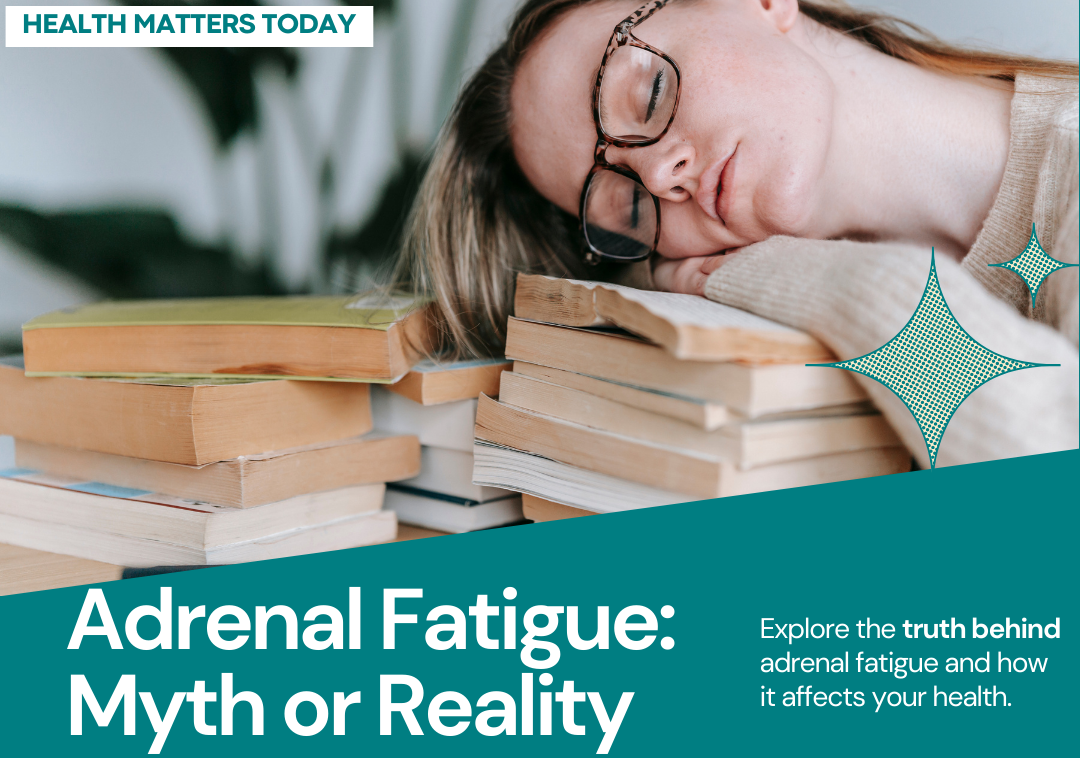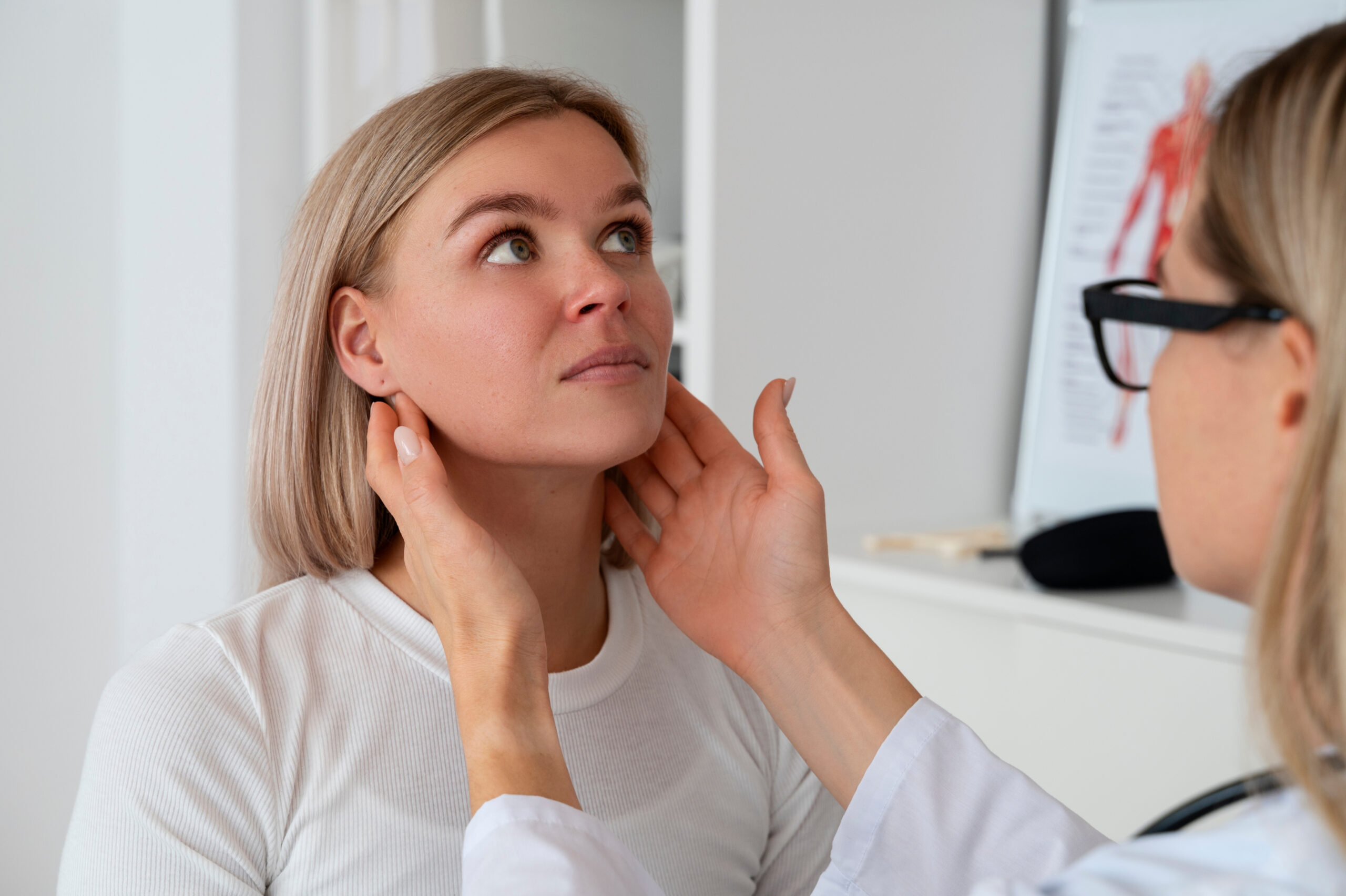Introduction: The Role of the Thyroid in Your Health
The thyroid is a small, butterfly-shaped gland located in the neck that plays a crucial role in your body’s metabolism and overall health. This tiny gland is responsible for producing hormones that regulate everything from your energy levels to your body temperature, and even your cardiovascular function. When the thyroid isn’t functioning properly, it can lead to a range of health problems that affect nearly every system in the body.
Thyroid disorders are common, affecting millions of people worldwide. From hypothyroidism (underactive thyroid) to hyperthyroidism (overactive thyroid), these conditions can have a significant impact on your well-being. In more serious cases, thyroid issues can lead to thyroid nodules or even thyroid cancer.
At Aura Endocrine and Diabetes, we specialize in diagnosing and treating a wide range of thyroid disorders using advanced tools like in-house thyroid ultrasounds and thyroid nodule biopsies. In this blog, we’ll break down the common thyroid conditions, how they’re diagnosed, and the treatment options available.
What Does the Thyroid Do?
The thyroid is a key player in your endocrine system, producing hormones that regulate metabolism. These hormones—triiodothyronine (T3) and thyroxine (T4)—affect how your body uses energy. When your thyroid produces either too much or too little of these hormones, it can throw off your body’s balance.
Some of the key functions controlled by the thyroid include:
- Metabolism: The rate at which your body converts food into energy.
- Body temperature regulation: Maintaining a stable body temperature.
- Heart rate: Regulating how fast your heart beats.
- Development in young children: Ensuring normal growth and brain development.
Given the thyroid’s importance, even small changes in its function can lead to noticeable symptoms. Now let’s look at some common thyroid disorders and how they’re diagnosed and treated.
Common Thyroid Disorders
- Hypothyroidism (Underactive Thyroid)
Hypothyroidism occurs when the thyroid does not produce enough hormones, leading to a slow metabolism. This can result in fatigue, weight gain, dry skin, depression, and sensitivity to cold.
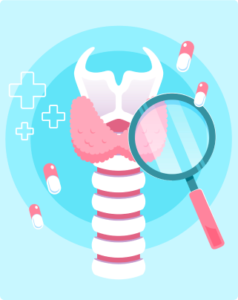
Symptoms of Hypothyroidism:
- Fatigue and sluggishness
- Weight gain despite normal diet and exercise
- Sensitivity to cold
- Constipation
- Dry skin and hair
- Depression or memory problems
Diagnosis:
Hypothyroidism is typically diagnosed through a TSH (Thyroid Stimulating Hormone) blood test. If your TSH levels are high, it indicates that your thyroid is not producing enough hormones.
Treatment:
The most common treatment for hypothyroidism is thyroid hormone replacement therapy, such as levothyroxine. This medication helps normalize hormone levels and manage symptoms.
- Hyperthyroidism (Overactive Thyroid)
In contrast to hypothyroidism, hyperthyroidism is characterized by an overproduction of thyroid hormones, leading to a fast metabolism. This can cause weight loss, increased heart rate, sweating, and irritability.
Symptoms of Hyperthyroidism:
- Unexplained weight loss
- Rapid heartbeat (tachycardia)
- Nervousness or irritability
- Excessive sweating
- Tremors (shaking hands)
- Difficulty sleeping
Diagnosis:
Hyperthyroidism is diagnosed through blood tests that measure TSH, T3, and T4 levels. A low TSH and high T3 or T4 indicate hyperthyroidism. A thyroid scan or radioactive iodine uptake test may also be used.
Treatment:
Treatment options for hyperthyroidism include antithyroid medications, radioactive iodine therapy, or in some cases, surgery to remove part or all of the thyroid gland.
- Thyroid Nodules
Thyroid nodules are lumps or growths in the thyroid gland. Most nodules are benign (non-cancerous), but some can be cancerous, so it’s important to have them evaluated.
Symptoms of Thyroid Nodules:
- A lump in the neck
- Difficulty swallowing or breathing
- Hoarseness or voice changes
- Symptoms of hyperthyroidism or hypothyroidism (if the nodule affects hormone production)
Diagnosis:
Nodules are typically detected during a physical exam or through imaging tests like a thyroid ultrasound. If a nodule is large or has suspicious features, a thyroid biopsy is performed to check for cancer.
Treatment:
Benign nodules may not require treatment but will be monitored. For malignant (cancerous) nodules, treatment may involve surgery or radioactive iodine therapy.
- Thyroid Cancer
Though relatively rare, thyroid cancer is one of the most treatable cancers, especially when caught early. The most common types include papillary and follicular thyroid cancer.
Symptoms of Thyroid Cancer:
- A hard nodule in the thyroid
- Swollen lymph nodes in the neck
- Persistent hoarseness or difficulty swallowing
Diagnosis:
Thyroid ultrasound and fine-needle aspiration (FNA) biopsy are the primary methods for diagnosing thyroid cancer. At Aura, we perform ultrasound-guided biopsies to ensure accurate results.
Treatment:
Treatment for thyroid cancer often involves surgery to remove the cancerous tissue, followed by radioactive iodine therapy to destroy any remaining cancer cells.
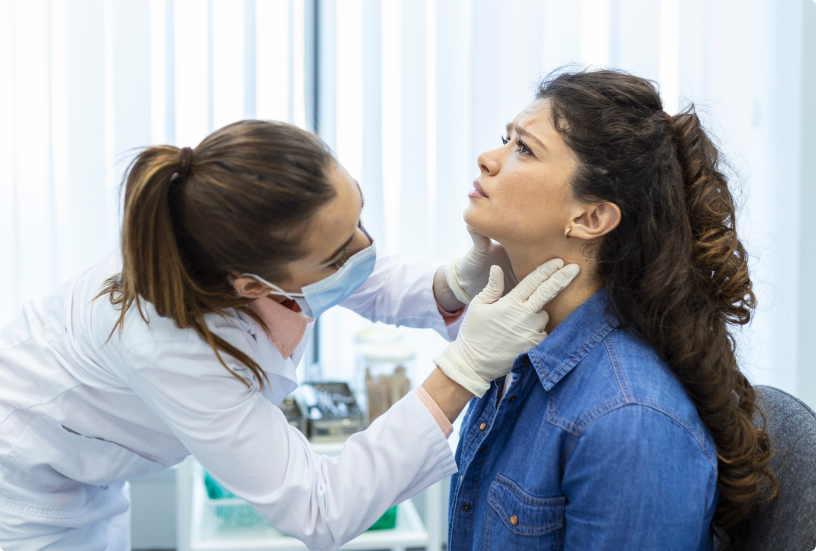
How Are Thyroid Disorders Diagnosed?
Thyroid Ultrasound:
At Aura Endocrine and Diabetes, we offer in-house thyroid ultrasounds to evaluate the structure of your thyroid and detect any abnormalities like nodules or swelling.
Thyroid Nodule Biopsy:
If a suspicious nodule is found, we perform ultrasound-guided biopsies to collect a tissue sample for further analysis. Dr. Igala is ECNU-certified (Endocrine Certification in Neck Ultrasound), ensuring expert care during diagnostic procedures.
Blood Tests:
We also conduct blood tests to measure levels of TSH, T3, T4, and thyroid antibodies to determine how well your thyroid is functioning.
Treatment Options for Thyroid Disorders
Depending on the type of thyroid disorder you have, treatment options may include:
- Medications: For hypothyroidism, thyroid hormone replacement is standard. For hyperthyroidism, antithyroid medications are used to suppress hormone production.
- Radioactive Iodine Therapy: Used to treat hyperthyroidism by shrinking the thyroid gland or destroying overactive tissue.
- Surgery: In cases of thyroid cancer or large nodules, surgery may be necessary to remove part or all of the thyroid.
- Lifestyle Changes: Diet and lifestyle modifications may help manage symptoms and support thyroid health. We work with you to develop a plan that suits your specific needs.
Conclusion: Why Early Detection Matters
Thyroid disorders are common and treatable, but early detection is key to managing symptoms and preventing complications. At Aura Endocrine and Diabetes, we offer comprehensive care for thyroid health, from diagnosis to treatment and ongoing management. If you’re experiencing any symptoms related to your thyroid, don’t hesitate to schedule an appointment with us today.
Call to Action (CTA):
Are you experiencing symptoms of a thyroid disorder? Contact Aura Endocrine and Diabetes for a consultation today. We offer in-house thyroid ultrasounds, biopsies, and expert treatment to help you manage your thyroid health.
